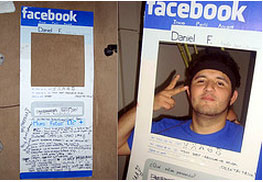As anyone who took the ACT or SAT tests remembers, shortly after you get your scores, your mailbox is flooded with brochures, pamphlets, and catalogs from schools that want your tuition money. This isn’t a coincidence, as The College Board and ACT, Inc. — the companies behind these tests — sells test-takers’ information to colleges. But a new lawsuit alleges that this practice is a breach of contract as it’s done without the test-takers’ consent. [More]
privacy

Your E-ZPass Might Be Tracking You Everywhere, Not Just Tollbooths
When you get a toll-paying transponder like the E-ZPass, you assume that it just sort of sits there until you drive through a toll booth. That’s not true. Maybe, according to a recent presentation at DEFCON, you should put your E-ZPass away unless you’re actually paying a toll right now. [More]
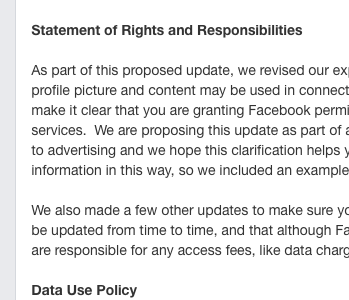
FTC Looking Into Recent Change To Facebook Privacy Policy
Back in 2011, Facebook settled charges with the Federal Trade Commission that the website deceived consumers by telling them they could keep their information private, only to repeatedly allow that information to be shared and made public. The settlement requires that Facebook get explicit permission from users before sharing such information, but the FTC wants to know if the website’s latest privacy update violates that agreement. [More]

Google Defends Scanning Users’ Emails Because Humans Aren’t Actually Reading Anything
Google’s attorneys are having their say in court documents as part of the months-long battle over whether or not it’s okay for Google to read users’ private emails. The company is defending itself against a class action lawsuit filed in May that alleged the company “unlawfully opens up reads, and acquires the content of people’s private email messages.” [More]
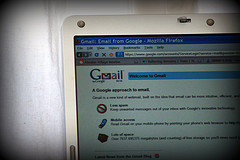
Google: Of Course We’re Going To See What’s In Emails Sent To Gmail Addresses, Don’t Be Silly
Raise your hand if you use Gmail. Now look around at your pals, who are ostensibly reading this with you and are perhaps one of 425 million Gmail users. Anyone sending email to those people apparently have no “reasonable expectation” that those communications are confidential, according to a court filing submitted by Google. [More]

Sylvan Tries To Distance Itself From Learning Center That Left Sensitive Files In Trash
Yesterday we told you about the Sylvan Learning Center in Beaverton, OR, that chose to leave hundreds of file folders containing sensitive customer information in a dumpster instead of shredding them. Now, the folks at Sylvan HQ are doing damage control. [More]

Mobile Dating App Tinder Says Security Breach Lasted Hours, But Two Weeks Is A Lot Of Hours
For those not in the know, Tinder is a sort of hookup app that works a bit differently than your traditional dating site: Users share their location with the app so Tinder can say hey, there’s someone nearby if you want to meet them. But birth dates and more specific location data of where you are aren’t supposed to show up to other users, and neither is your Facebook profile, as users are identified on the app by just first name. All of that was exposed during a recent security breach, which yesterday Tinder said lasted only a few hours, but a new report says that was the case for weeks. [More]
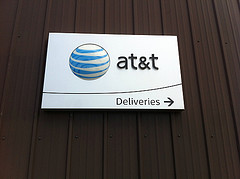
Tell AT&T You Don’t Want It Selling Info About Your Wireless And U-Verse Usage
Last year, Verizon Wireless ticked off a lot of people when it announced its Precision Market Insights program, which sells supposedly anonymous data about customers’ wireless behavior to marketers. Now AT&T has decided it wants to make money selling this sort of info to third parties, but for both wireless and U-Verse customers. [More]
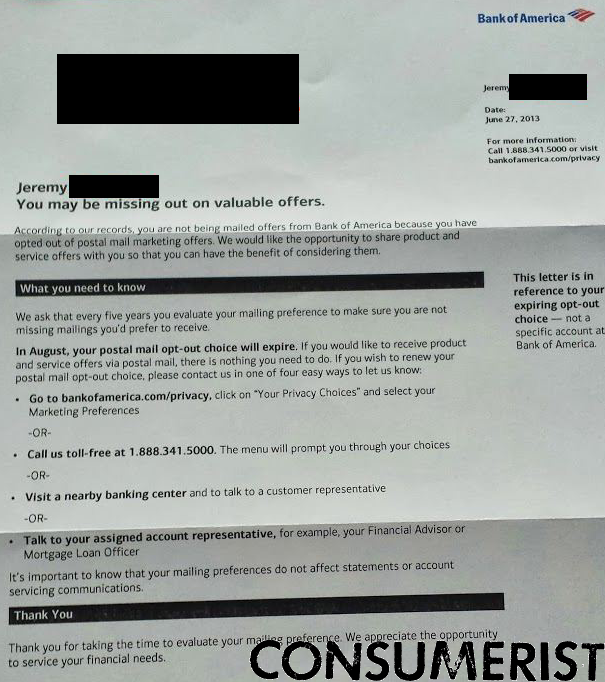
Bank Of America Makes You Opt Out Of Junk Mail Every 5 Years, Even If You Don’t Have An Account
When you opt out of receiving junk mail from a company, you might think that this is the last time your mailbox will be filled with that particular business’s unsolicited offers. But no, as some companies put time limits on how long you can stop them from wasting time, paper, and money to send you things that go straight into the shredder. [More]
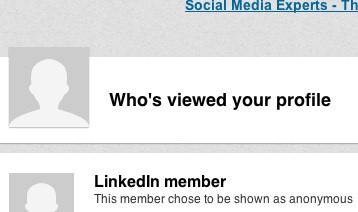
You Can Make Your LinkedIn Profile Stalker-Proof, But Then You Might As Well Not Have A Profile
On Facebook, you can make your profile very private so that no one outside of your network can see anything other than your name. You can also block individuals from contacting you. Twitter allows you to make your feed private so that you pick and choose who can follow your Tweets. Meanwhile, LinkedIn allows you to limit who can see your profile, but does not give you the ability to block individuals, so it’s kind of an all or nothing. [More]

Apple Says It Received 5,000 Data Requests From Law Enforcement, Doesn’t Say How Many It Fulfilled
With many people still wondering about the extent to which the National Security Agency and other authorities were peeping in to consumers’ phone and Internet activities, some of the larger firms caught up in the scandal are making attempts at being transparent about what they did and didn’t hand over to the government. However, some are being more transparent than others. [More]

Google Says No (For Now) To Facial Recognition Apps For Glass
As consumers test Google’s Glass device on the streets and subways of America, many people have raised privacy concerns about the possibility of developers creating facial recognition apps for the wearable computers. But Google is trying to calm those fears by saying it won’t allow such apps… for the time-being. [More]

Microsoft Eases Concerns (Slightly) About Being Spied On By Xbox One
Among the major concerns about the upcoming Xbox One gaming console is that the device’s new Kinect sensor is so thoroughly integrated into the the system that it will always be on and listening/watching what users are doing. In response to consumers who would rather not be monitored 24/7, Microsoft has issued a statement that quells some concerns while raising others. [More]
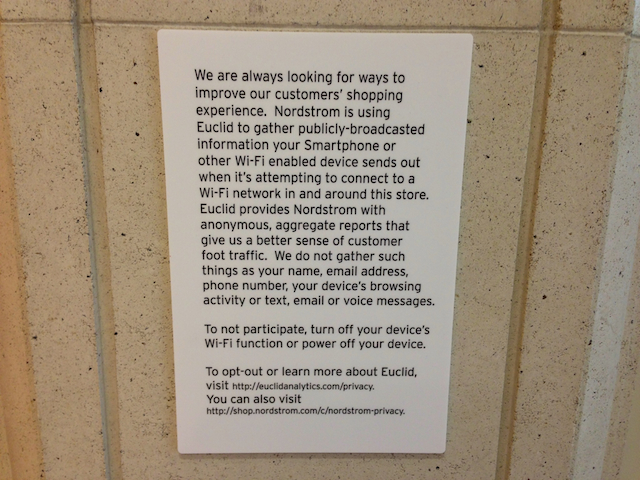
Nordstrom Decides To Stop Tracking Customers’ Smartphones
Earlier this week, we told you how Nordstrom has been testing a smartphone tracking service at 17 of its stores around the country. Almost immediately after the public found out about the tracking system, the department store decided to put an end to it, though it insists the timing is just a coincidence. [More]

Your ZIP Code And Your Name, That’s All Retailers Need To Track Your Behavior
How many times have you been asked “May I have your ZIP code?” when paying with a credit card? Many people just assume it’s for security purposes, but in reality it’s more likely that you may have just given marketers access to a wealth of knowledge about you and your shopping habits. [More]

4 Ways Retail Stores Are Monitoring Your Every Move
From the second you pull into a store’s parking lot, you can be relatively certain there are electronic eyes on you. But we’re way past the days of black-and-white monitors to discourage vandalism and shoplifting. Today’s retailers follow you everywhere and know lots about you. [More]



